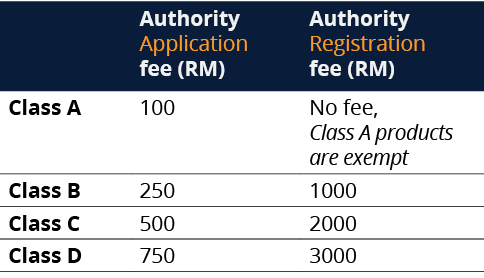Representation for foreign manufacturers
Authorized Representative requirement
Foreign companies without a physical establishment in Malaysia must appoint a local license holder to act as their Authorized Representative (AR). The AR plays a critical role in ensuring compliance with Malaysia Medical Device Regulations by managing the registration and regulatory requirements on behalf of foreign manufacturers.
The Authorized Representative's responsibilities include:
- Acting on behalf of the foreign manufacturer to conduct the conformity assessment, apply for review with the Conformity Assessment Body (CAB), and obtain MDA approval.
- Establishing, maintaining, and implementing an appropriate Quality Management System (QMS).
Obtaining the required establishment license.
- Ensure the AR's name, address, and contact details are listed on the device label.
- Facilitating communication between the CAB, MDA, and the foreign manufacturer.Managing post-market activities and post-approval change management to ensure ongoing compliance.
It is important to note that only one AR can represent a single product, ensuring clear accountability and streamlined processes.
Qserve provides expert guidance in appointing and managing your Authorized Representative, ensuring seamless compliance and a smooth path to market in Malaysia.
Latest Regulatory Developments
CE-marking accepted during EU-MDR transition
To support Malaysia's medical device registration, certificates from recognized countries must remain valid during the new registration and re-registration process. However, acknowledging the unpredictable timelines and challenges associated with the transition to the EU MDR, the Medical Device Authority (MDA) allows using expired EC certificates for the conformity assessment procedure under certain conditions. This approach ensures the continuous supply of medical devices in the Malaysian market.
Conditions for Using Expired EC Certificates:
- The devices comply with Directive 90/385/EEC and 93/42/EEC.
- There are no significant changes to the design or intended purpose of the devices.
- The devices pose no unacceptable risk to the health or safety of patients, users, or others, and they protect public health.
The expired EC certificates are verified with the registered Conformity Assessment Bodies (CABs) to ensure compliance with these conditions.
This proactive measure by the MDA supports manufacturers in maintaining regulatory compliance and ensures the uninterrupted availability of medical devices in Malaysia's healthcare market.
Labeling guidance
Update that the label should include
Adhering to Malaysia Medical Device Regulations, manufacturers must ensure that all device labels meet the latest requirements of the Medical Device Authority (MDA). A key update in the labeling guidelines now specifies the following:
The label must include:
- Details necessary for a user to identify the device, the contents of the packaging, and, where it is not obvious to the user, the intended purpose of the device.
This update replaces the previous requirement of including only the “description and intended use” on the label. The revised guidance ensures that device labels provide comprehensive, user-friendly information, enhancing safety and usability.
Manufacturers align with Malaysia’s regulatory requirements by following this updated labeling standard, ensuring smooth market access and compliance.
Change notification guidance
.
Updated Version Includes EU Regulation Sections
Malaysia's Medical Device Authority (MDA) has established clear guidelines for managing changes to registered medical devices, including categorizing significant changes.
The fundamental principle is straightforward:
If a change requires notification to the FDA or your Notified Body, it is also necessary to inform the MDA. This ensures that all regulatory bodies remain updated on changes that could impact the device's safety, performance, or compliance.
By adhering to this baseline, manufacturers align with Malaysia Medical Device Regulations and maintain compliance for their products in the Malaysian market.
Registration Validity
License validity
All manufacturers, authorized representatives (AR), importers, and distributors must apply for an establishment license. The validity of the establishment license is three years, and license renewal shall be applied one year prior to its expiry date. All manufacturers and AR (foreign manufacturers) must apply for medical device registration; the license is valid for five years.
Important links and guidance
Where to find more information?
Regulatory timelines and fees
Malaysia registration timeline
The turnaround times for receiving approval depend on the risk class, ranging from 30 working days for class A to 220 working days for class D.
*The mentioned fees are currently applicable and may be changed over the course of time.
